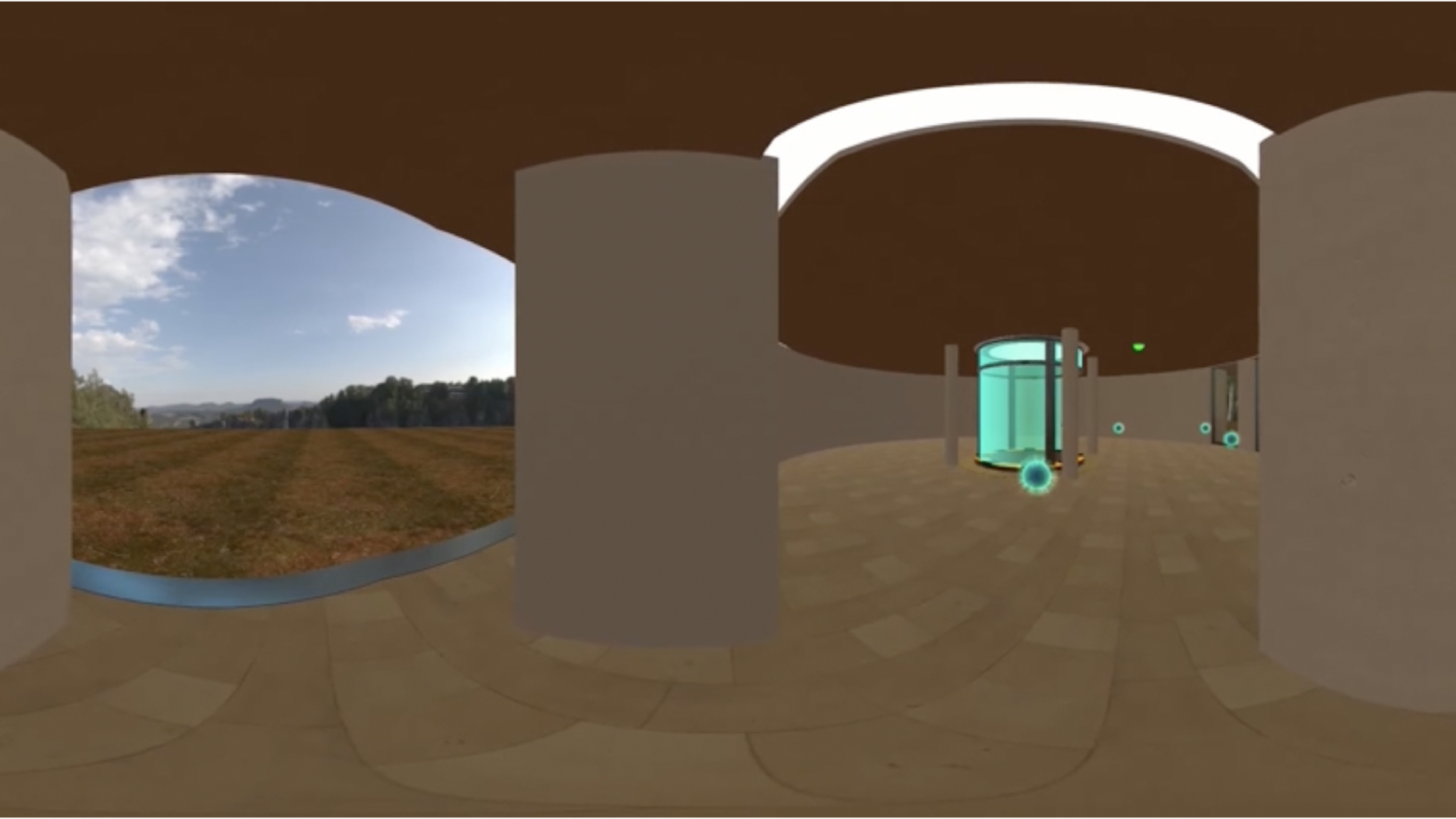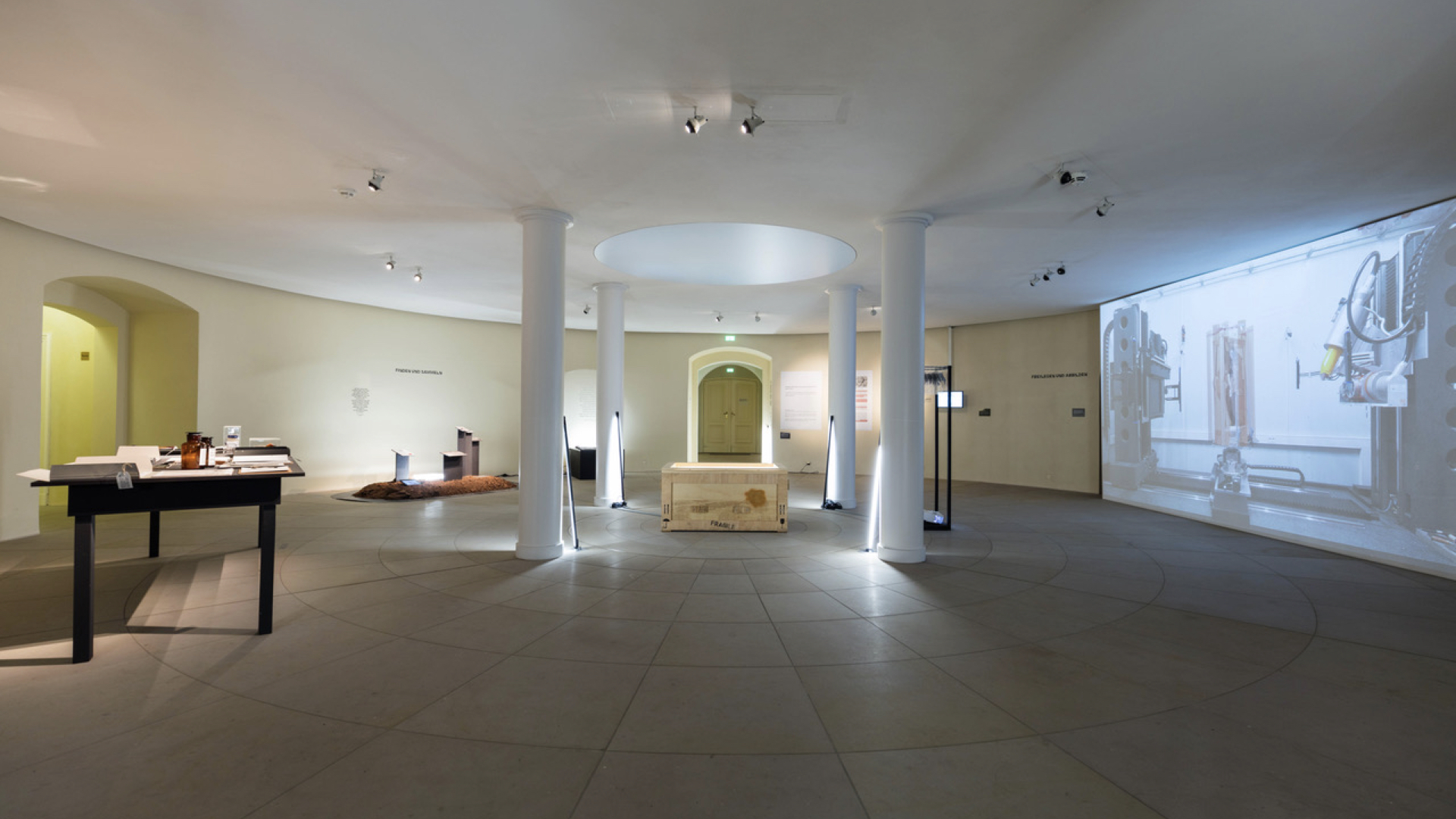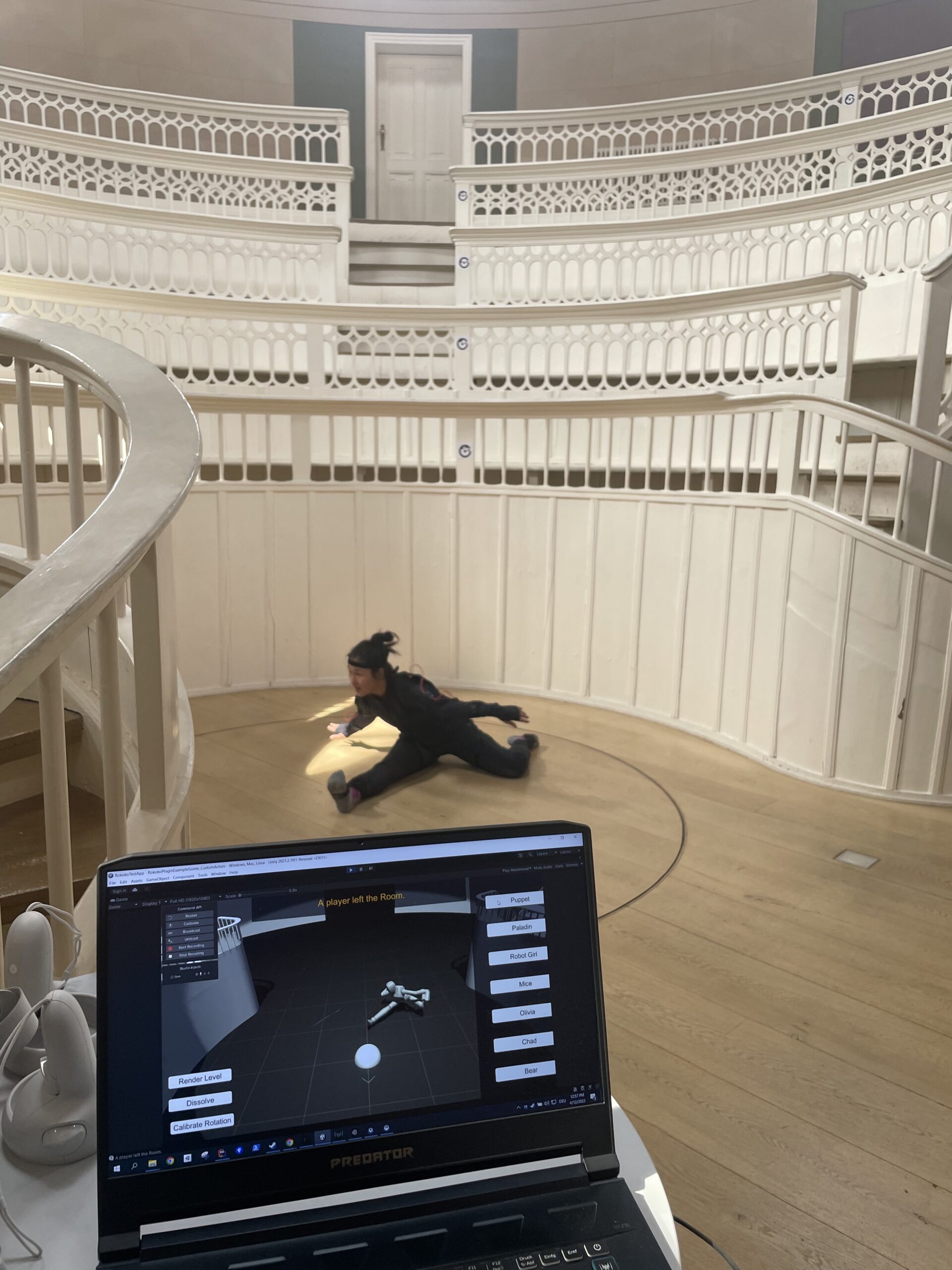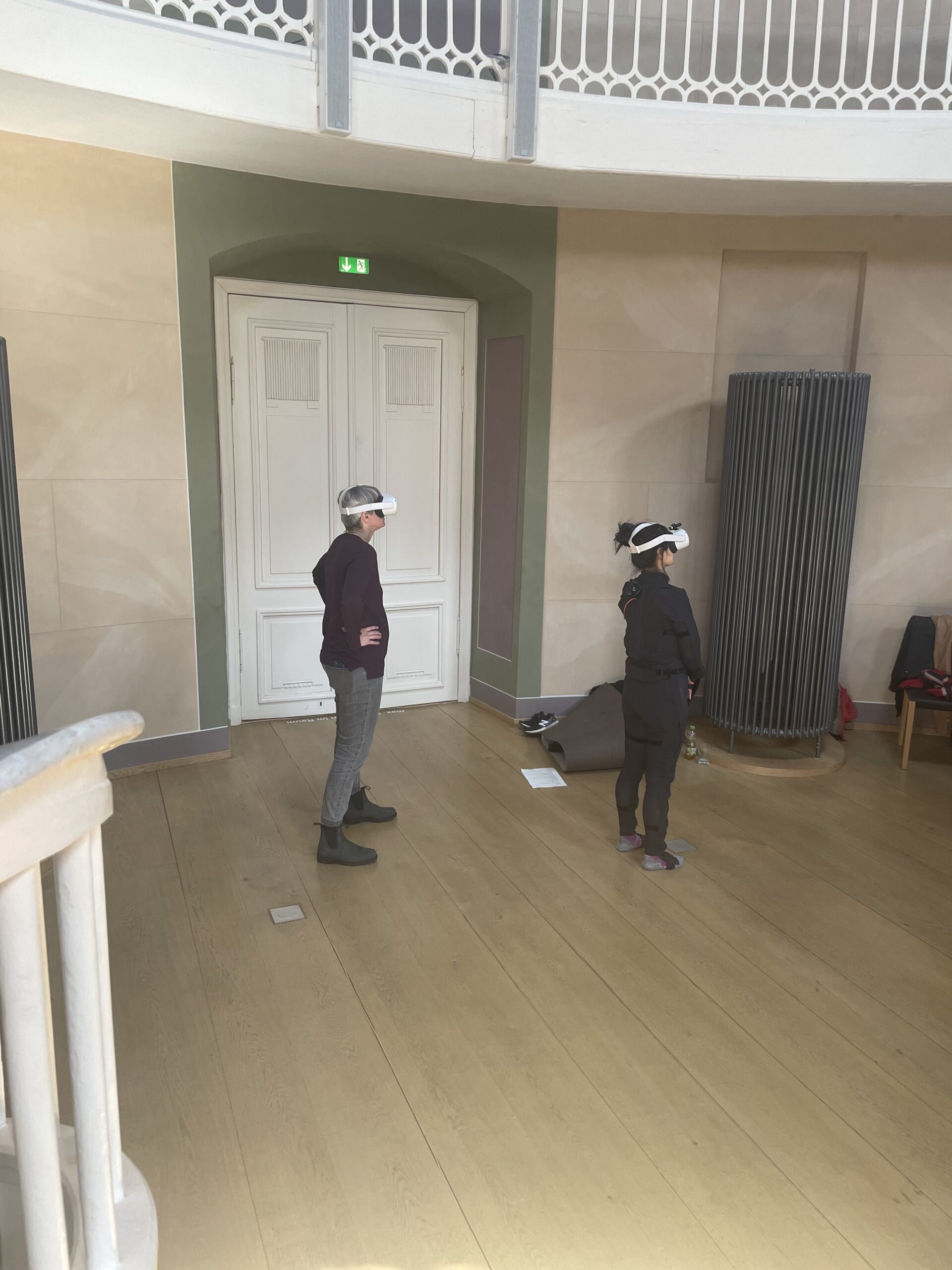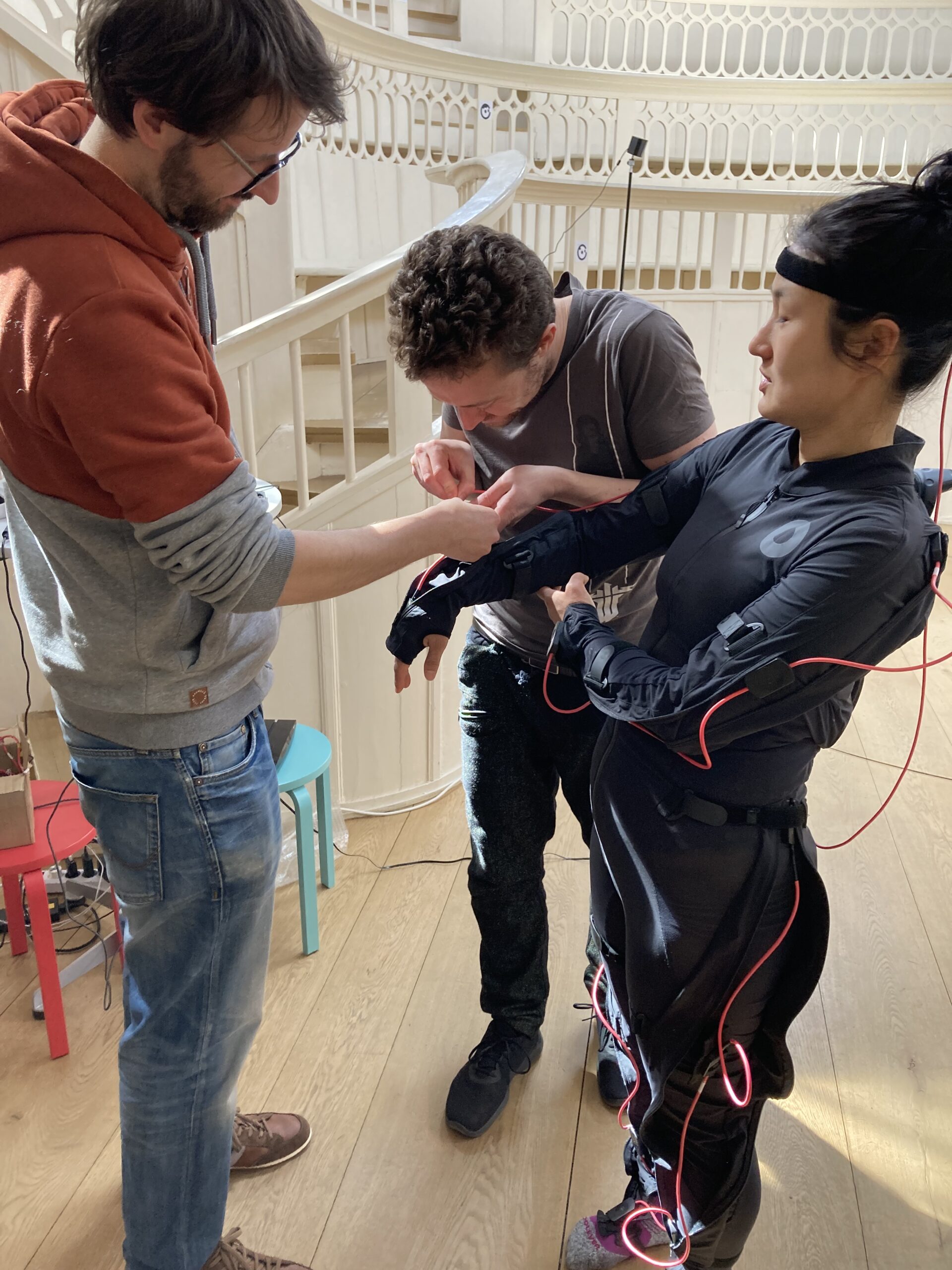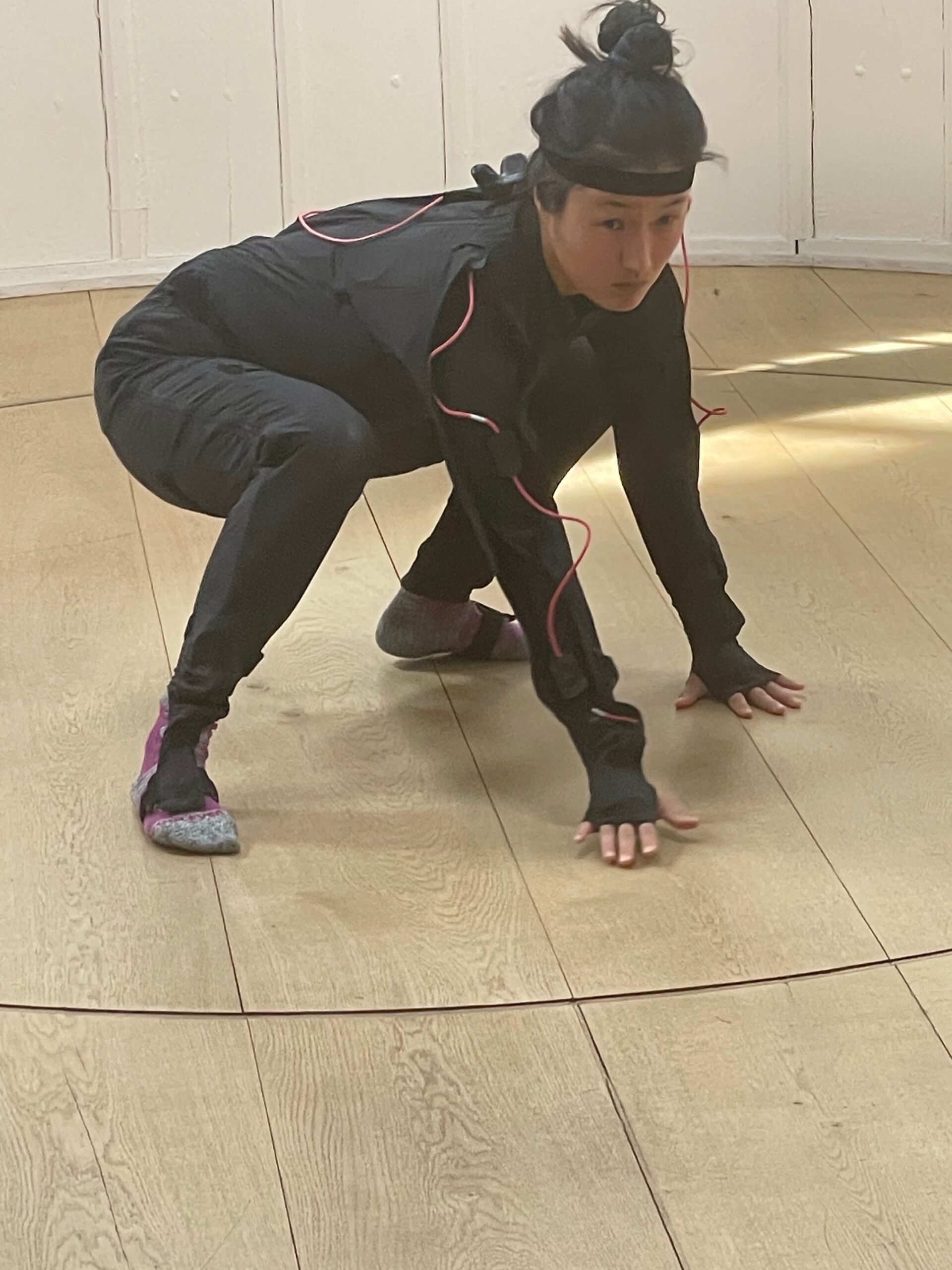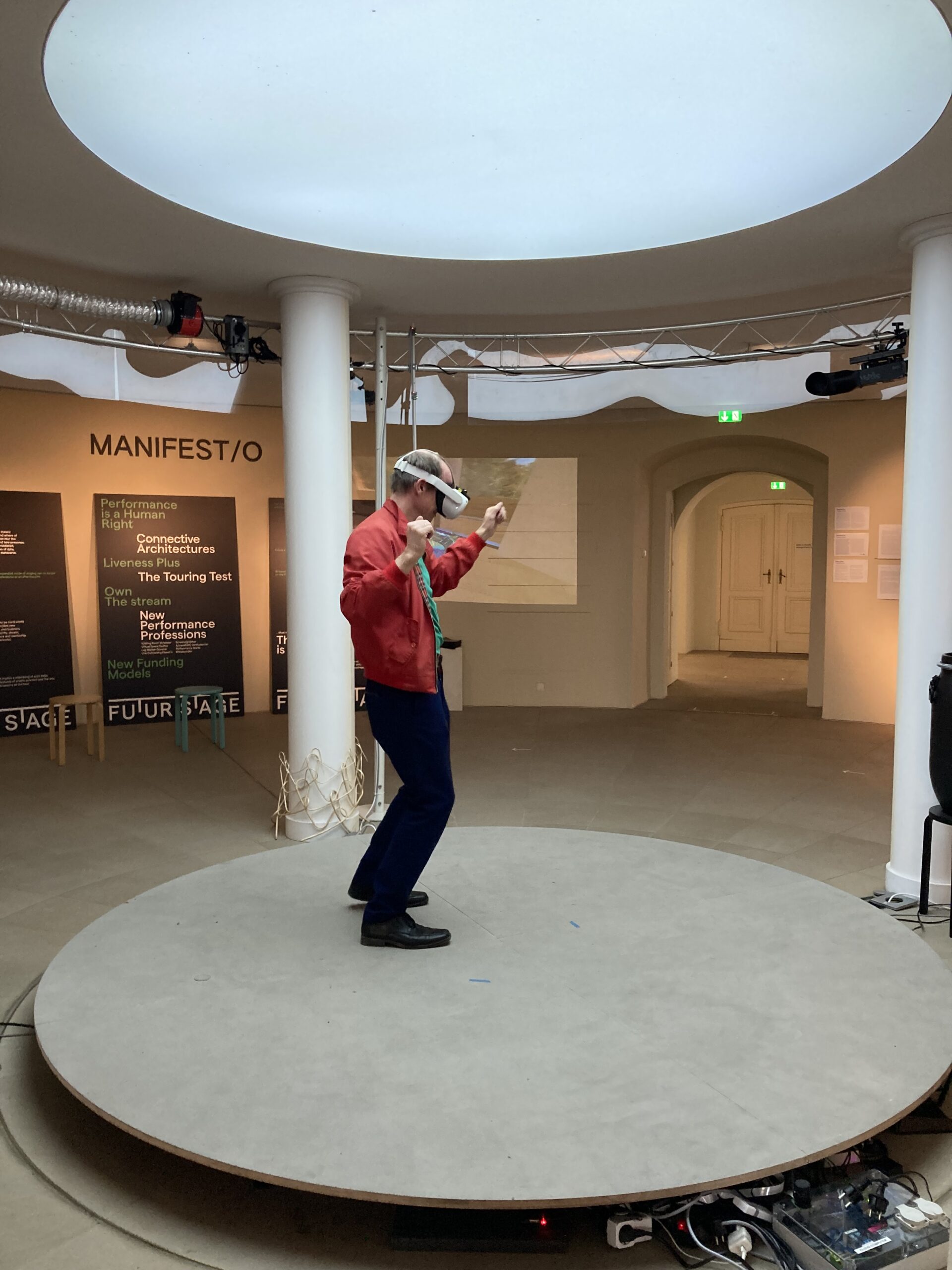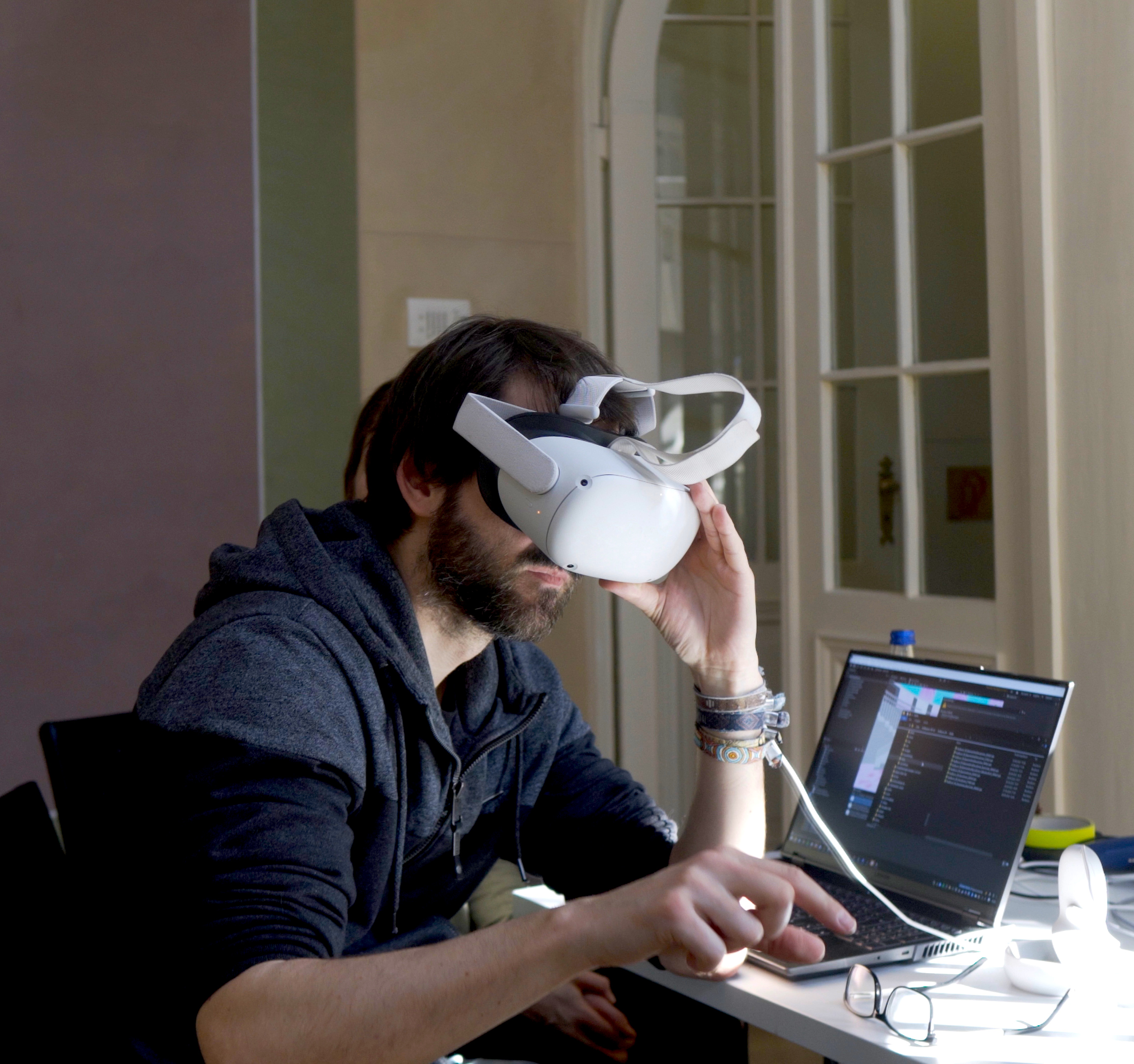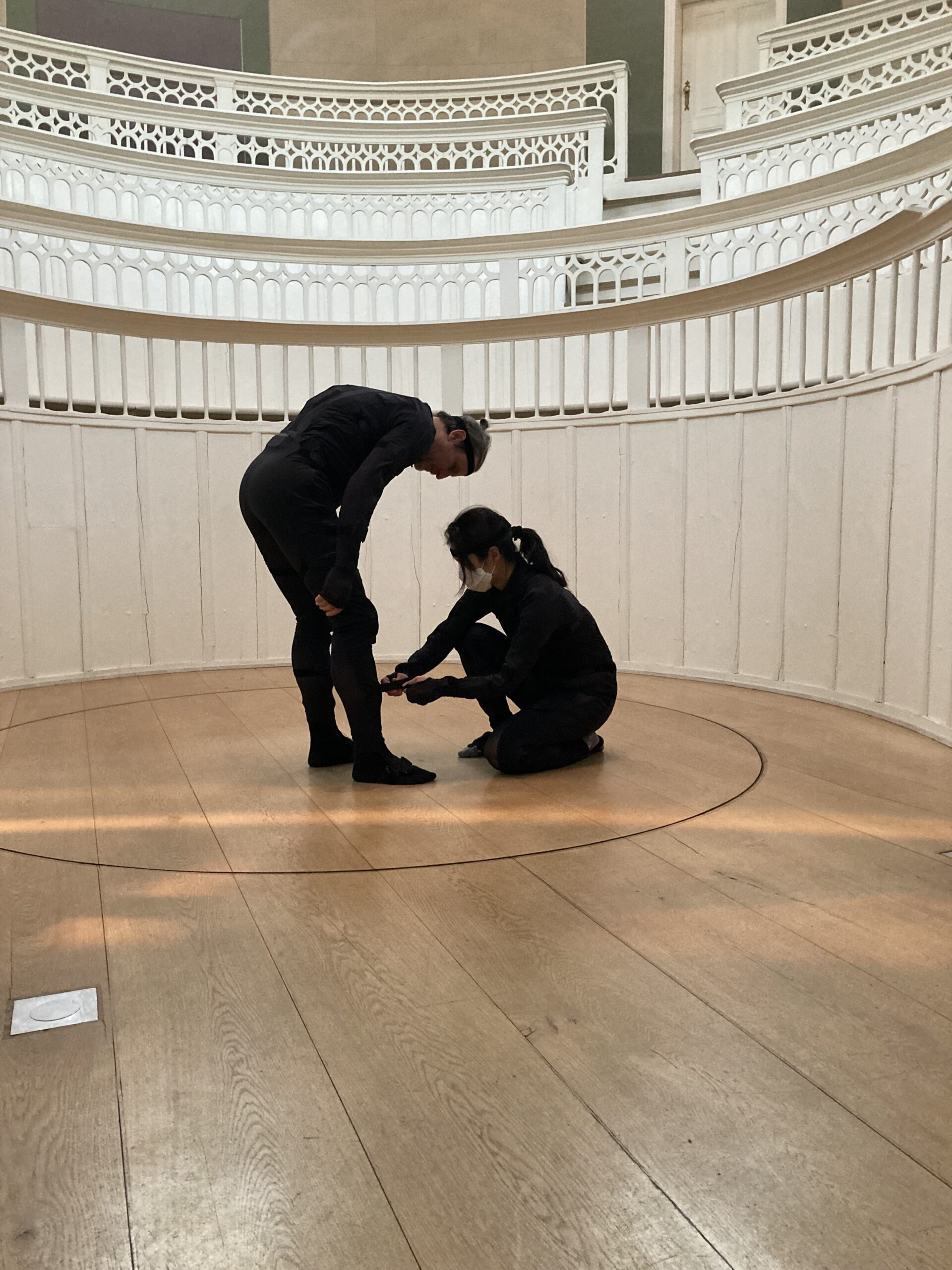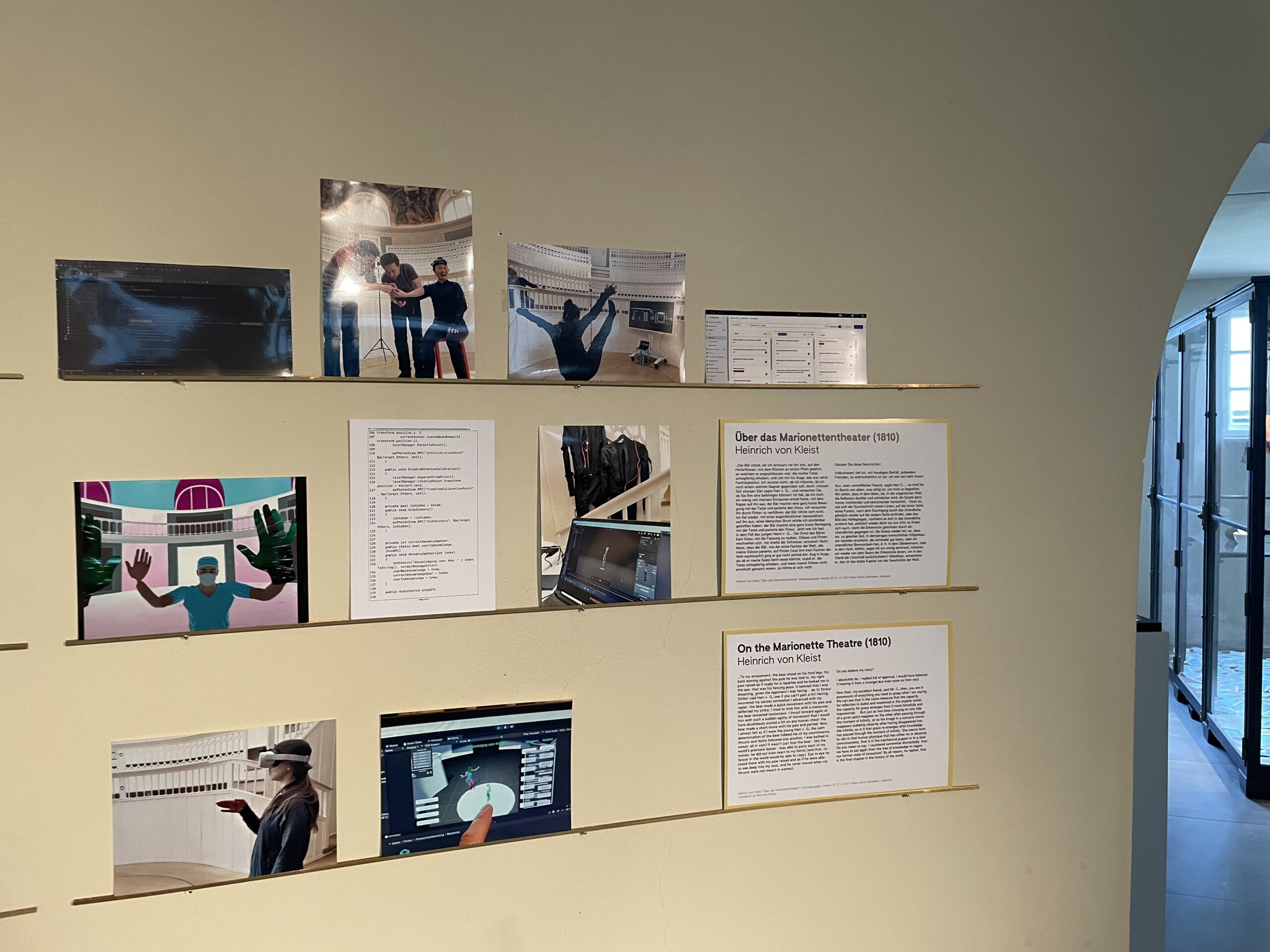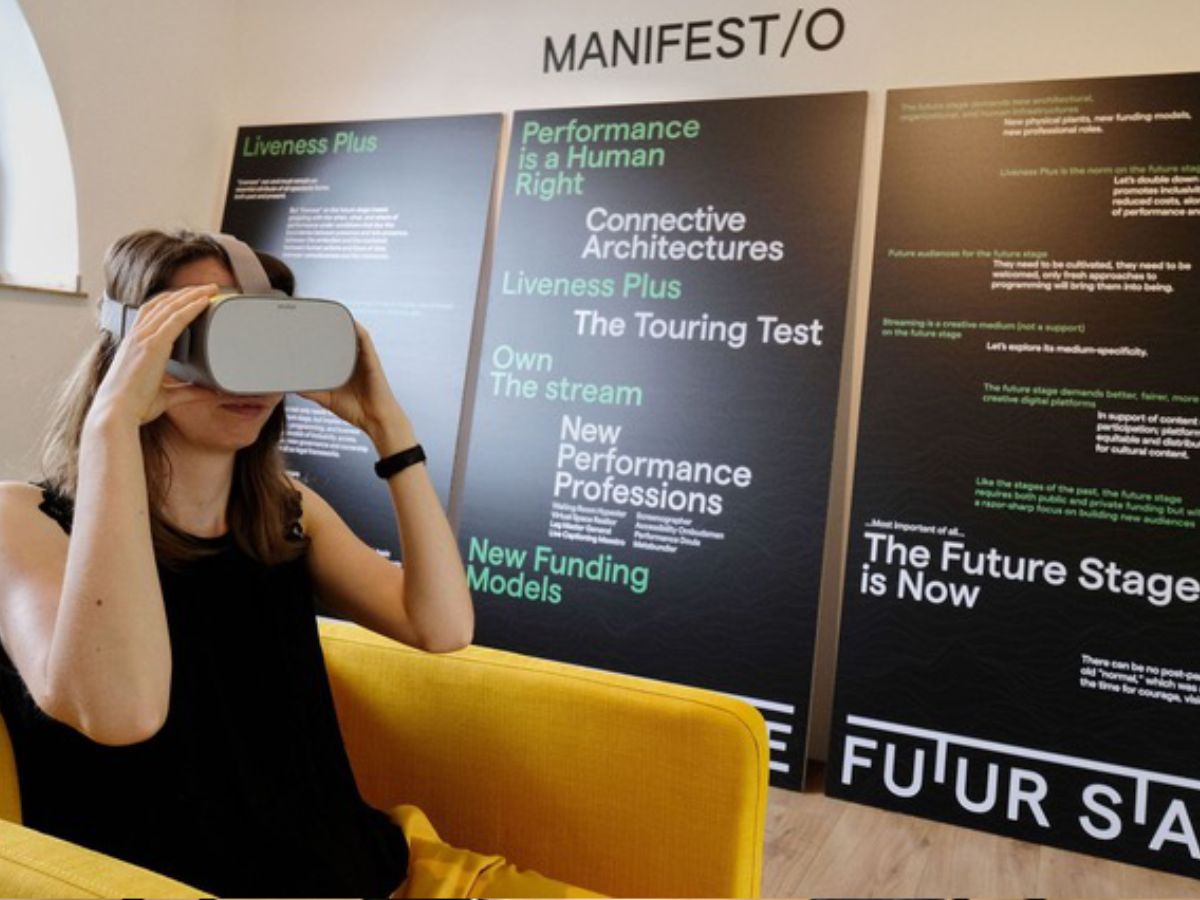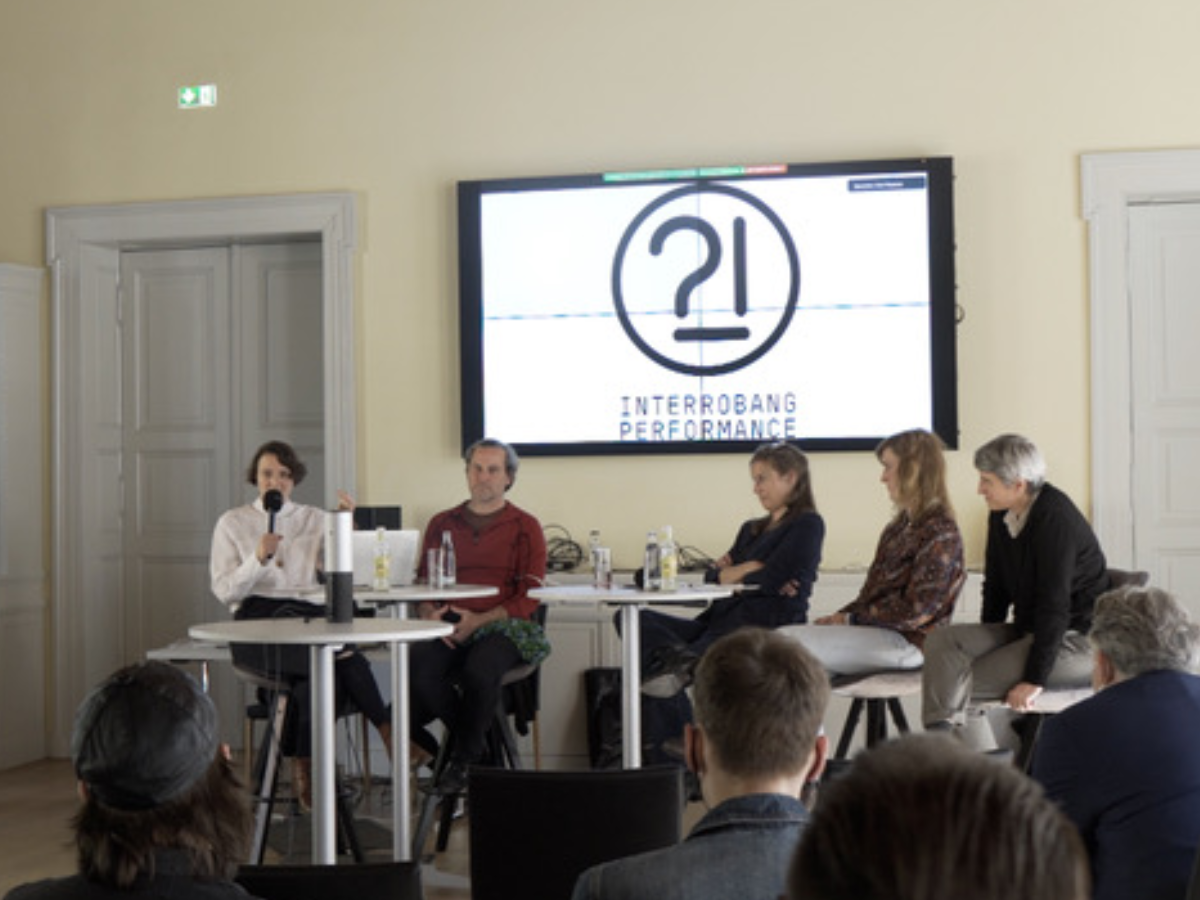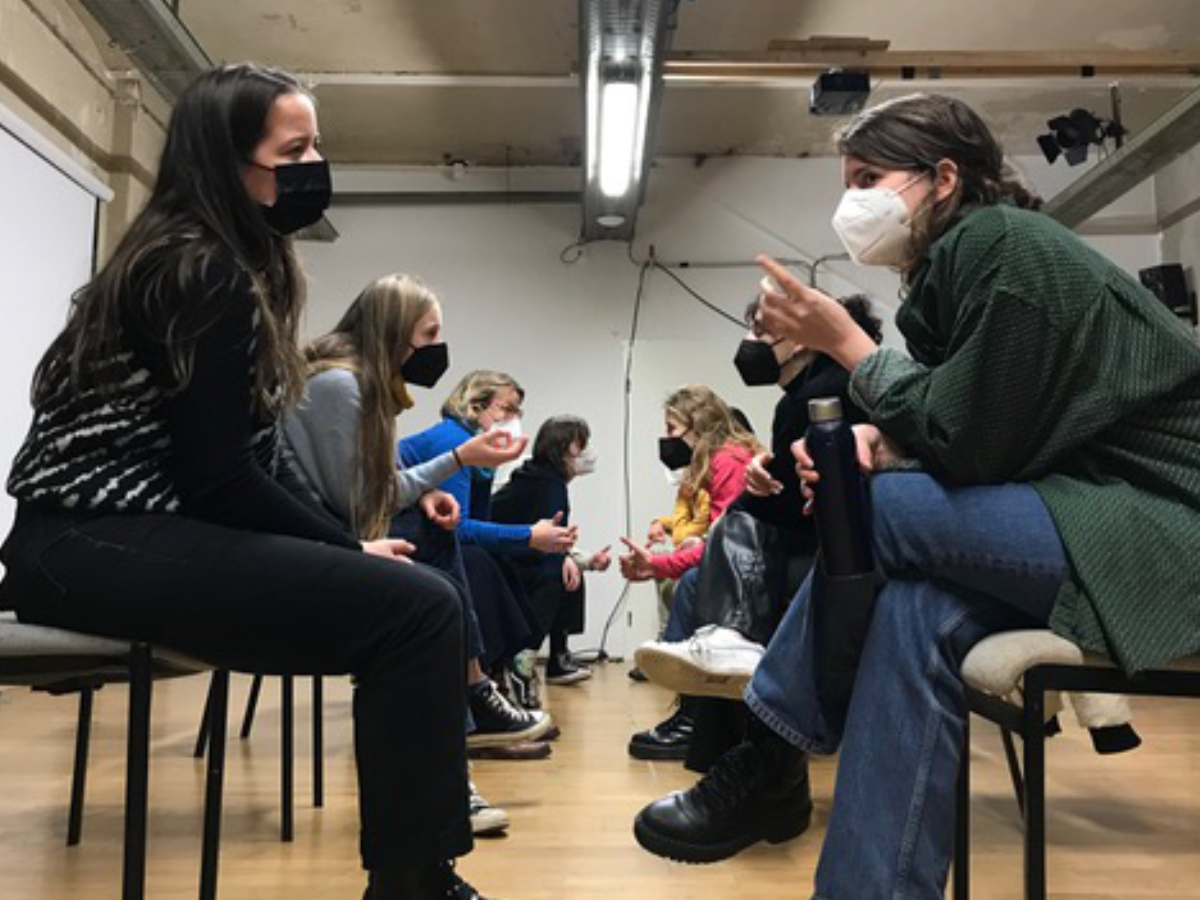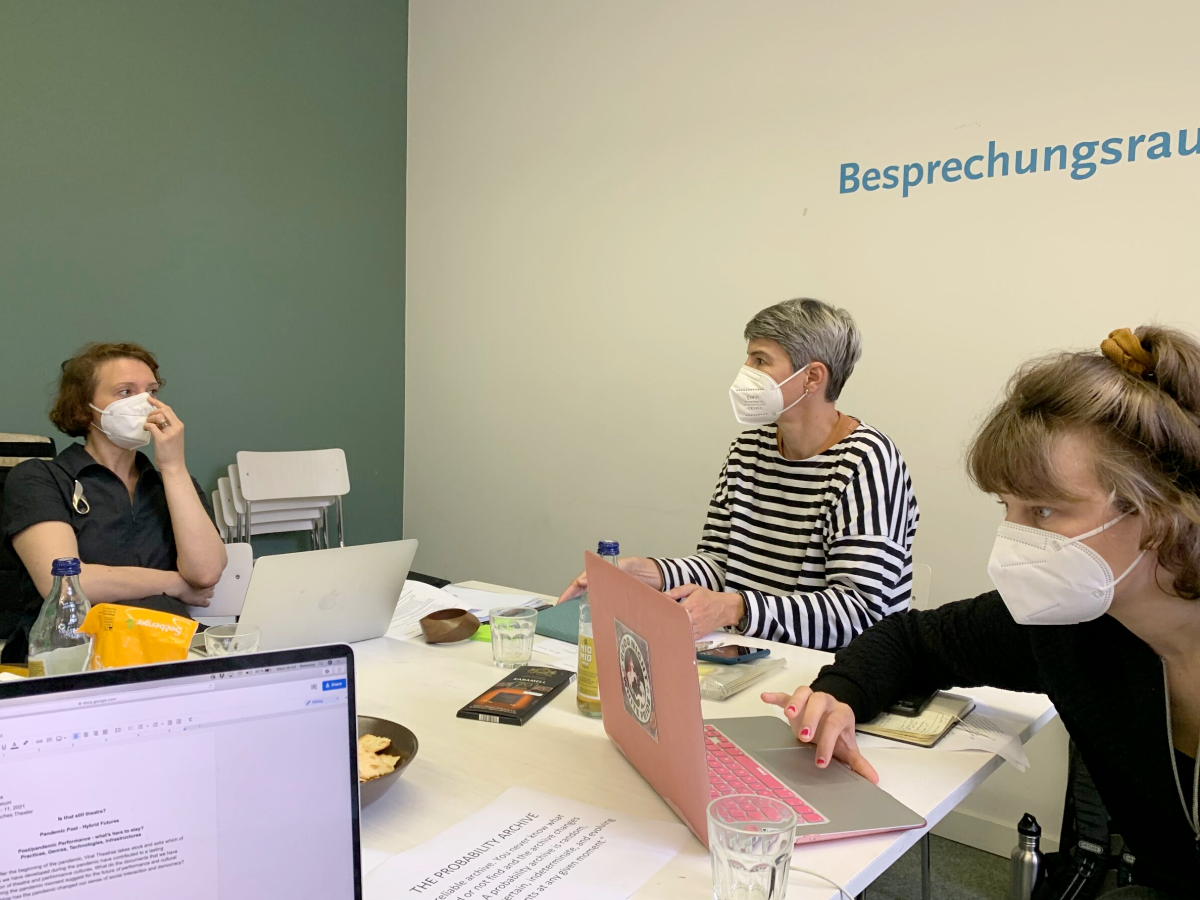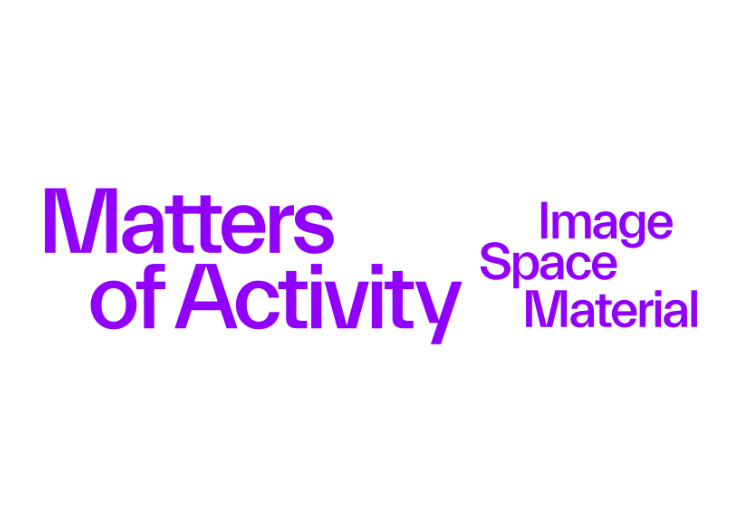VR Performance
Home > VIRAL THEATRES >
– And the advantage that this puppet would have over a human dancer?
– The advantage? First of all, a negative one, my excellent friend, namely, this, that the marionette would never be self–conscious…
Heinrich v. Kleist, On the Marionette Theatre, 1810
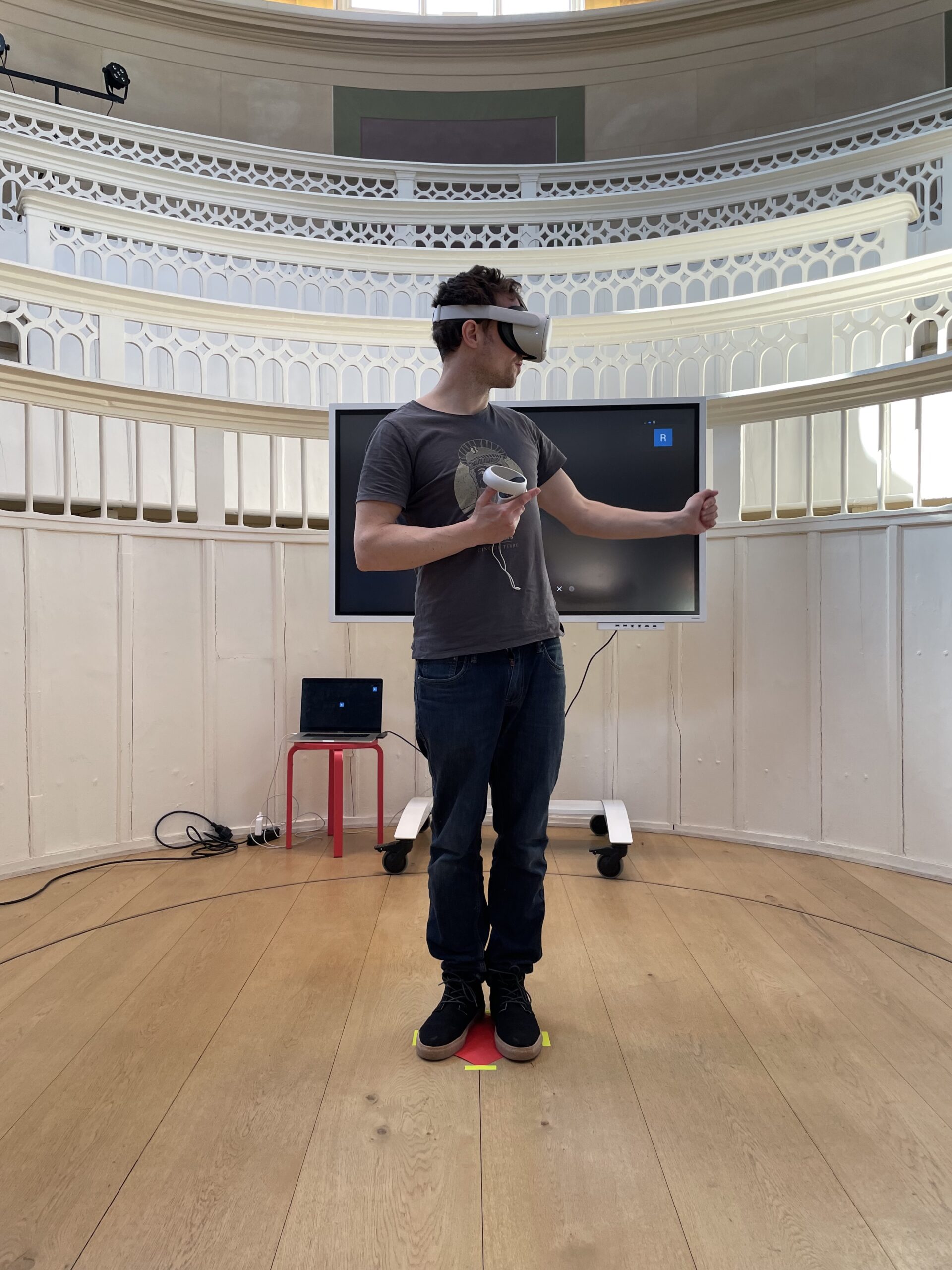
How can VR function as theatre and create a live encounter in a social space?
Marionette Theatre 3.0 had two theatre machines come face to face with each other: Virtual Reality becomes enmeshed with the automaton or marionette of the non-human performer, as Heinrich v. Kleist explored in his seminal if cryptic theatre essay “On the Marionette Theatre” (1810).
Technology used for VR Performance
- Wireless Meta Quest 2 systems were our headsets.
- In them, the modelled VR space geometrically copies the physical space.
- The headsets were furnished with dedicated laser calibration systems that allow for an exact mapping of virtual onto physical space and to allow the fusion of virtual with physical objects.
- In the centre of the space, one finds a virtual glass elevator that takes the visitor to another floor and into a Rococo motion capture performance.
- The positional tracking is handled by an added mounted VIVE-tracker.
- The combined data are streamed, filtered and fused to a steering computer in the space and are then streamed in real time to a Unity-App.
- Unity then projects the movements onto an avatar that can be selected and positioned in space by the steering computer which in turn sends the data onto a photon multiplayer server.
- The multiplayer server streams the data to all connected Quest 2 headsets and creates a live audio connection.
- That way, an interaction between different floors becomes possible: visitor and performer are physically separate but virtually connected.
PERFORMANCE LAYOUT: OUR DANCE FLOOR
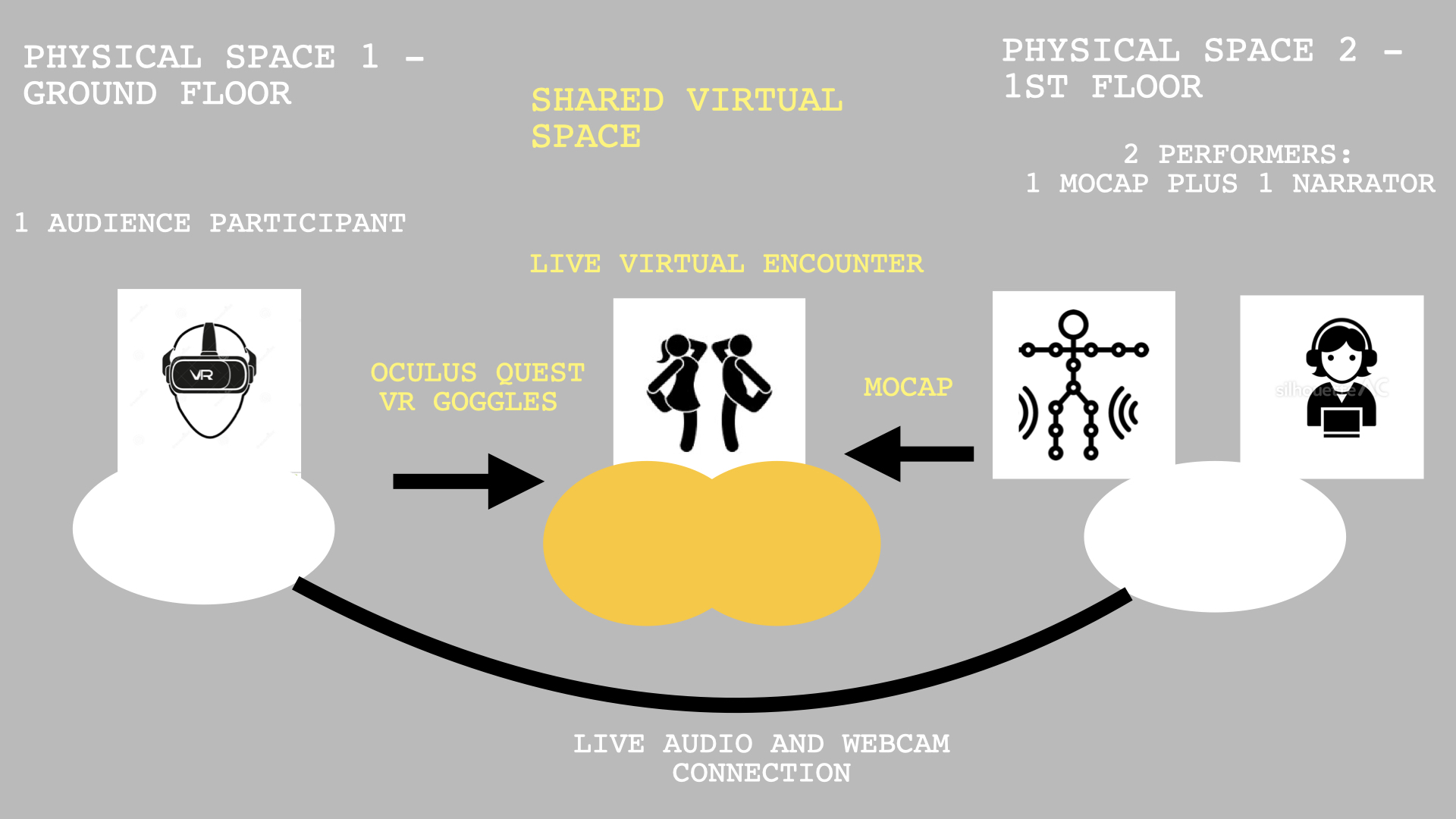
PHYSICAL AND VIRTUAL PERFORMANCE SPACE
REHEARSAL STILLS
PERFORMANCE TEXT
Marionette Theatre 3.0 was presented at the Tieranatomisches Theater in Berlin, on April 28-30, 2024.
Performed by Jungsun Kim, Lajos Talamonti.
Concept VR by Christian Stein.
Developed by Marco Antonio García Rodriguez.
Text & Dramaturgy by Janina Janke, Ramona Mosse, Nina Tecklenburg.
Directed by Nina Tecklenburg and Christian Stein.
VIRAL THEATRES
The Viral Theatres Research Project is a collaboration of the EXC2020 Temporal Communities at the Freie Universität Berlin, the EXC Matters of Activityas well as Gamelab.berlin at Humboldt University Berlin & Bard College Berlin; the research project was generously funded by the VolkswagenFoundation. We also cooperated with the following partners for its final exhibition and symposium: Nachtkritik.de, metalab@Harvard & FU Berlin.
